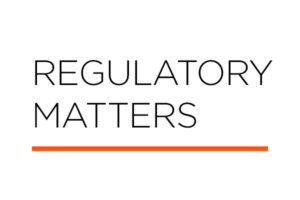 The UK’s other corporate governance code has been updated, with new and amended provisions covering remuneration votes, board structure and environmental & social (E&S) issues, among other topics.
The UK’s other corporate governance code has been updated, with new and amended provisions covering remuneration votes, board structure and environmental & social (E&S) issues, among other topics.
On November 13, 2023, the Quoted Companies Alliance (QCA) published the 2023 QCA Corporate Governance Code (the 2023 Code), which became effective for financial years beginning on or after April 1, 2024. The QCA code was last updated in 2018.
Companies that adhere to the QCA code are predominantly quoted on the Alternative Investment Market (AIM) and Aquis Stock Exchange, although a significant number of Standard Listed Main Market companies choose to report against it too. The key amendments to the 2023 Code are outlined below.
Remuneration
The 2023 Code contains a new Principle 9 dedicated to remuneration. Under this principle, in addition to the recommendation to put companies’ annual remuneration report to shareholder vote at each annual general meeting (AGM), companies will be encouraged to put forth forward-looking remuneration policy proposals for shareholder approval. Further, any employee share scheme and long-term incentive plan approvals or amendments should be voted on by shareholders.
The principle notes that the remuneration policy should be aligned with the company’s purpose, strategy and culture and should seek to motivate management and promote long-term growth in shareholder value.
Board Structure
While maintaining the current expectation that there should be at least two independent non-executive directors on a company’s board, the 2023 Code additionally requires that, at a minimum, half of the board should be made up of independent non-executive directors. If the board chair was deemed independent on appointment, they may be counted as an independent non-executive director when calculating the board’s overall independence.
In addition to overall board independence, the 2023 Code states that key board committees such as the audit and remuneration committees should comprise a majority of independent non-executive directors.
Despite acknowledging that director independence classification is a matter for the board, the 2023 Code provides a non-exhaustive list of factors that should be considered by boards when classifying their directors.
Further, while it does not provide diversity targets, the 2023 Code encourages the board to consider a variety of characteristics such as socio-economic background, nationality, education, gender, ethnicity, and age, when considering the composition of the board.
Stakeholder Interests, E&S Issues
The 2023 Code encourages an expansive view of corporate governance that incorporates E&S issues and the interests of stakeholders other than shareholders. Principle 4 states that it is the responsibility of the board to oversee the company’s approach to E&S issues, with particular attention to the workforce and ensuring that their practices towards employees are aligned with the company’s values. Further, this principle outlines that employees should be able to raise concerns in confidence and that companies should take appropriate action where necessary.
Principle 10 calls for companies to ensure that their corporate disclosures, including those relating to sustainability, are adequate to address the requirements of investors.
Glass Lewis Perspective
Overall, Glass Lewis welcomes the updates to the QCA Code, which we believe may encourage better governance and reporting practices at AIM companies. In particular, we support the revised approach to remuneration votes, which will provide shareholders with further opportunities to express their views on executive remuneration practices. The heightened board independence criteria will ensure alignment with international best practice, with the increased focus on environmental and social issues likely a welcome development for many investors.
Timeline for Implementation
The QCA has disclosed that there will be a grace period of 12 months to give companies adequate time to fully adopt the new code. As such, while the first disclosures are expected to be filed in 2025, it may be 2026 before we see all QCA companies fully reporting against the 2023 Code.
